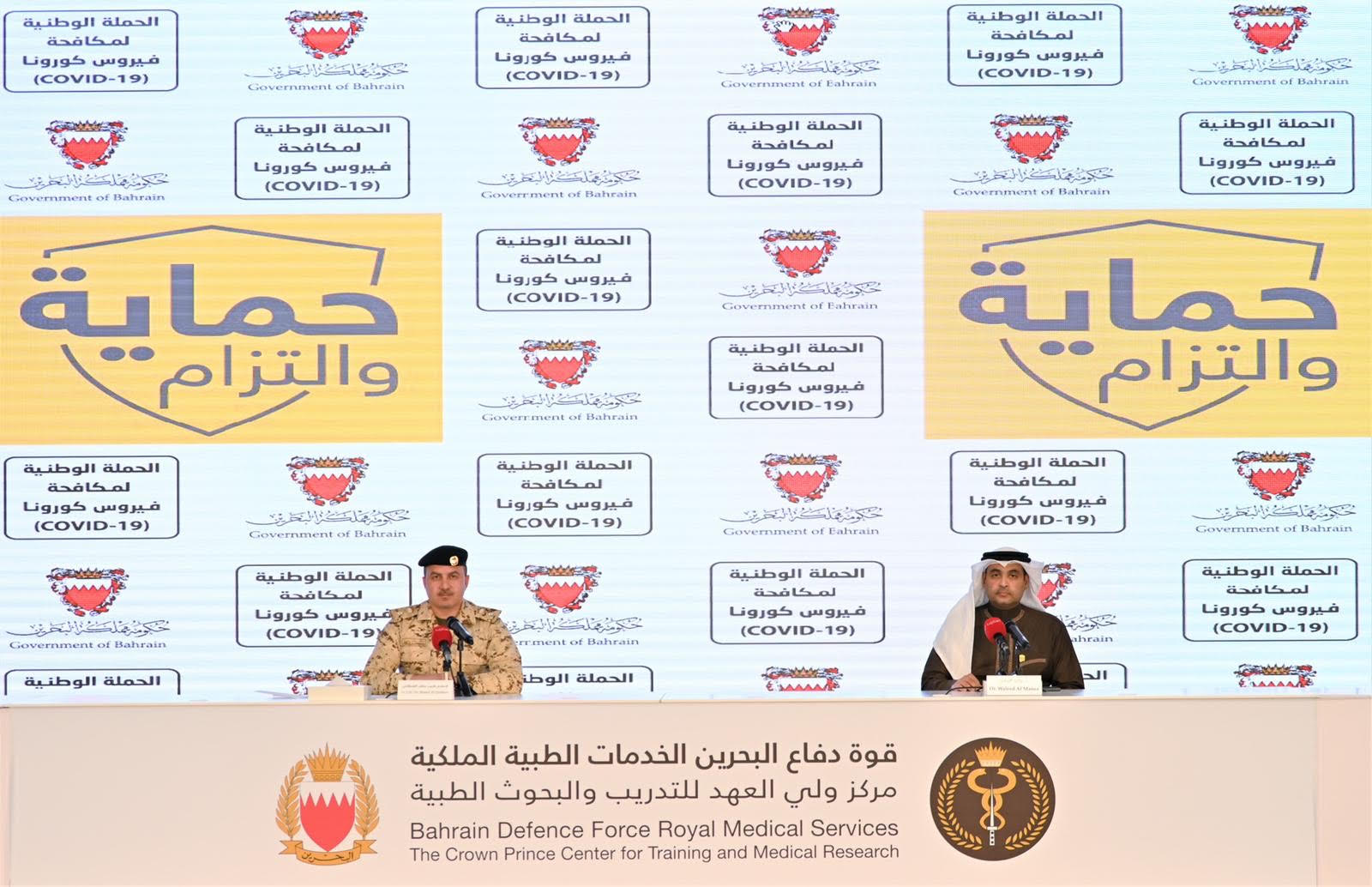Update to the Kingdom of Bahrain's COVID-19 Protocols

The National Medical Taskforce for Combatting the Coronavirus (COVID-19), today held a press conference at the Crown Prince Centre for Training and Medical Research at the Bahrain Defence Force Hospital to highlight updated measures and testing protocols taken to mitigate COVID-19.
Following approval by the Government Executive Committee, chaired by His Royal Highness Prince Salman bin Hamad Al Khalifa, the Crown Prince and Prime Minister, the following updates to COVID-19 protocols will be implemented, starting from Sunday, 09 January 2022.
1 - Increasing PCR testing for individuals who are experiencing COVID-19 symptoms, which may include high temperature, coughing, and shortness of breath, and for those who have a positive rapid antigen test, and those who have been in close contact with active COVID-19 cases.
2 - Increasing COVID-19 rapid testing for employees across the Kingdom's vital sectors.
3 - The following COVID-19 protocol updates are to be implemented for vaccinated and un-vaccinated individuals arriving into the Kingdom of Bahrain:
All arrivals must present a negative PCR certificate issued no more than 72 hours before arriving into the Kingdom of Bahrain.
One PCR test will be required to be taken upon arrival, with a reduced cost of BHD 12.
Unvaccinated individuals aged 12 years and above must complete a 10-day quarantine in their residence or place of stay.
4- The National Vaccination Campaign will continue its rollout at the same pace.
5- Isolation and treatment centres will continue to operate at their current capacities.
6- Citizens and Residents who display symptoms are encouraged to get tested as soon as possible.
7- Unvaccinated individuals and those who have yet to receive a booster shot are encouraged to do so to protect public health.
The Taskforce noted that the Kingdom of Bahrain's efforts to address the pandemic have proven effective. This can be attributed to the proactive implementation of plans and risk mitigation protocols.
The Taskforce also noted that the COVID-19 Alert Level Traffic Light System is based on the daily average number of cases in intensive care. The system had previously been based on the total number of active cases at any one time.
The Taskforce highlighted the importance of remaining vigilant given rising cases and the emergence of the Omicron variant. However, at present, the number of patients requiring treatment in hospital or intensive care units is low. This reflects the success of The National Vaccination Campaign and other measures taken to protect public health.
The revision to health protocols has been based on:
- The latest international developments and data related to COVID-19.
- The success of the National Vaccination Campaign, with 94% of eligible individuals having received two vaccine doses, and 83% of eligible individuals having received a booster shot. The high vaccination rate is reflected in the low number of patients receiving treatment in hospitals and intensive care units.
- National studies have found Omicron symptoms to be less severe than previous COVID-19 variants among vaccinated individuals and those who have received a booster shot.
- The effectiveness of rapid COVID-19 tests.
Comments
Login to add comment


